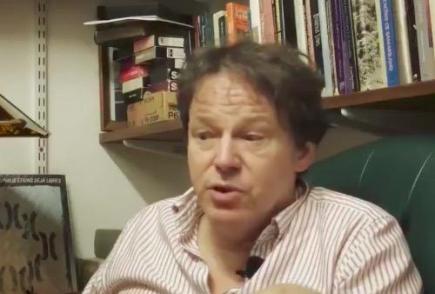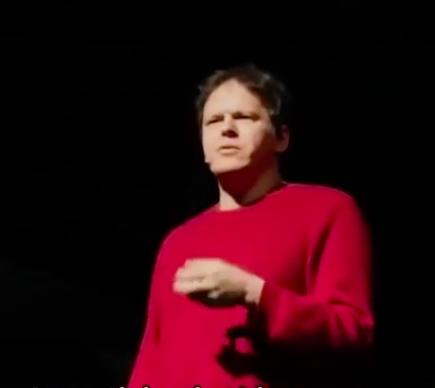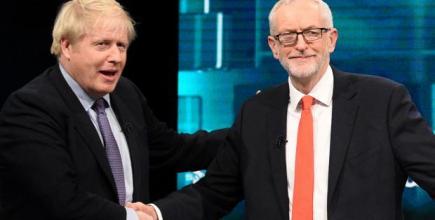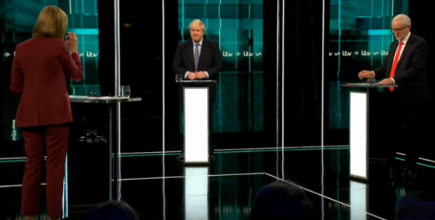One look at David Graeber’s latest book, Bullshit Jobs, will tell you that he is not a man to mince his words. This image has been reinforced recently as the anthropologist entered the debate on anti-Semitism, roundly rejecting accusations of bias in the Labour Party.
We spoke together following his posting of a short video highlighting the wider problem of anti-Semitism throughout British society. Graeber clarified his position with steady conviction, his frustration thinly disguised behind sardonic laughter and exasperated sighs.
He told MM: “I don’t want to deny the fact of anti-Semitism, but there’s absolutely no reason to believe that it’s more common among Labour supporters than anyone else.
“In fact, far less so. But if you look at the media coverage there’s a thousand times more coverage on the Labour Party than anywhere else.”
A part of the problem is just how widespread anti-Semitism is within British society, a fact which few seem prepared to acknowledge when it does not concern Labour. Graeber asserts that in a direct poll, Conservative Party members actually displayed a higher level of anti-Semitism than that exhibited in the Labour sample.
When asked about former Labour MPs who claimed they were driven out of the party by the issue, including figures such as Luciana Berger and Chuka Umunna, Graeber’s position was very clear.
He explained: “I don’t think that they got driven out. If you look at the people who have left the party over anti-Semitism, most of them weren’t Jewish, and a lot of the people who still remain close to Jeremy Corbyn are Jewish.
“It’s absurd.”
Many former Labour MPs have claimed anti-Semitism as the root cause of their leaving the party. Graeber however, is sceptical.
He argued: “I don’t think that this has anything to do with concern over anti-Semitism. If you want to address anti-Semitism, you allow everybody to say what’s on their mind.
“People are going to say offensive shit, some of them. It’ll come out, once it comes out you can address it.”

It is worth noting that a large proportion of ministers who have resigned from the Labour Party come from its more centrist elements. If issues with Corbyn’s policies are central to the constant bombardment besetting his party, his political opponents could scarcely have found a better attack line.
“It’s the perfect accusation, because if you say this is a conspiracy, they will simply say ‘Aha! You believe in Jewish conspiracies’, right?
“There’s almost no way you can reply to it which won’t make you yourself look anti-Semitic.”
Graeber is also quick to add that he believes the way in which the accusations of racism in the Labour Party are used is indicative of a wider problem.
“Making these kind of highly politicised accusations is a form of anti-Semitism, because it’s instrumentalising Jewish safety and making them a political football,” he stressed.

“If you start screaming ‘He’s a racist! Anti-Semitism!’ you are going to terrify the Jewish community.
“Terrorising Jews is anti-Semitic. You are going to create a general atmosphere of fear which will actually exacerbate anti-Semitism.”
Surely though, I asked, in the face of such a large quantity of accusations, you can’t deny that there is anti-Semitism within the Labour Party?
“Of course there is”, Graeber replied. “There’s anti-Semitism everywhere.”
However, Graeber remains highly sceptical that there is any direct evidence of the “institutional racism” critics are drawing attention to. Instead, accusers pursue what Graeber calls “guilt by association”.
He argued: “Corbyn laid a wreath on the graves of some people, some of whom were in an organisation, other members of which committed acts of terror.”
Using that logic, he continued: “If you gave me enough time, I could prove Margaret Thatcher was a communist.”

The openness offered by Corbyn and Momentum is, according to Graeber, key to drawing out the poison of any offensive rhetoric.
In a society which is anti-Semitic and Islamophobic, which is racist, sexist, homophobic and transphobic, these ideas will seep into any organisation.
Ultimately, Labour is made up of members of this flawed society. As such, although its aims as a party are progressive, its membership and support base will inevitably reflect those wider problems.
Graeber’s video expresses outright fear at the public support that far-right groups now receive. There is footage of the Charlottesville Rally, which Donald Trump infamously described as containing “very fine people”, as well as news coverage of a plot uncovered in Italy last month to start a new Nazi Party.
But Graeber’s fears go further than that.

“What scares me in Britain today is the whipping up of a false narrative to destroy the left, which will create a climate in which Jews will be increasingly physically endangered,” he revealed.
A demonstration of this has unfortunately been all too forthcoming recently. Only last week, a rabbi visiting from Israel was attacked in the street by far-right extremists, who shouted “kill the Jews” as they beat him.
The incident received a startlingly small response given the magnitude and clear racial motivation of the attack, a fact which angered Graeber.
He vented: “You can’t get much more explicitly anti-Semitic than beating up a rabbi while shouting ‘kill the Jews’.
“The real danger is from those guys. They’re the ones who actually physically attack Jews. Give me one example of a far-left person physically attacking a Jewish person.”
A sickening event like an attack on a rabbi is symptomatic of a political atmosphere which is dangerously permissive of hate speech. What is more, Graeber argues, it would be naive to expect protection from the police as these sorts of crimes escalate:
“The cops are not going to defend us against the Nazis,” he insisted.
“In Charlottesville, somehow the cops all vanished as soon as the Nazis showed up at the synagogue.”
It is the far right as well, who are largely responsible for the increase in these attacks and who subsequently pose the greatest threat. A common misconception surrounding anti-Semitism is the portrayal of Muslim-led hate groups.
He explained: “I am so offended when people say that it’s equally right, left, and Muslims. Muslims aren’t a political category. It’s right-wing Muslims who are attacking Jews.”
For Graeber then, groups like ISIS fall into a type of fascism that attaches itself to Islamic theology like a parasite. It is the right wing and fascist elements of these groups which create the danger to Jews and to wider society, not the Islamic elements.
I asked Graeber for his thoughts on a Guardian piece written by Jonathan Freedland, in which Freedland finishes by asserting that “the optimists, those who assumed things would work out for the best, they never made it out in time”.
Graeber is astounded by the audacity of this statement.
He said: “Does he [Freedland] actually believe that Corbyn will create stormtroopers who are going to come after Jews?
“Who will these stormtroopers be – Momentum? “Momentum was founded by Jewish people!”
Jeremy Corbyn’s Labour Party has transformed for many the way in which people engage with politics. This has created a party willing to admit that it is not above the wider dangers faced throughout British society. Yes, anti-Semitism existed in the Labour Party before Jeremy Corbyn became leader. However, through drawing out of these toxic elements, Corbyn has begun the process of healing the Labour Party of this affliction.
Graeber’s anger and fear at the attacks on Labour are not without substance. The Conservative cabinet has a problem with bringing home from Syria 60 abducted British children before they freeze or starve, because they are considered by the Home Secretary to be security risks.
We needn’t repeat yet again the racist and homophobic slurs Mr. Johnson has normalised in his tenure in politics.
If, as Graeber fears, the police will not protect us against fascism, who will? If we call a man racist who has dedicated his life to fighting against racism, what does that say about our relationship with truth in Britain today?
We have a responsibility to hold all our political leaders to high standards, and when a progressive party displays regressive traits, it is rightly a disappointment.
But for all his fears, Graeber is not entirely pessimistic.
He argued: “What is good for the Jewish community is ultimately what is good for everybody else, which is a society with hope for the future, with a sense of community, with a sense of common purpose and a sense mutual respect for difference.
“Who’s offering that?”
That, I told him, is something people will have to work out for themselves.



